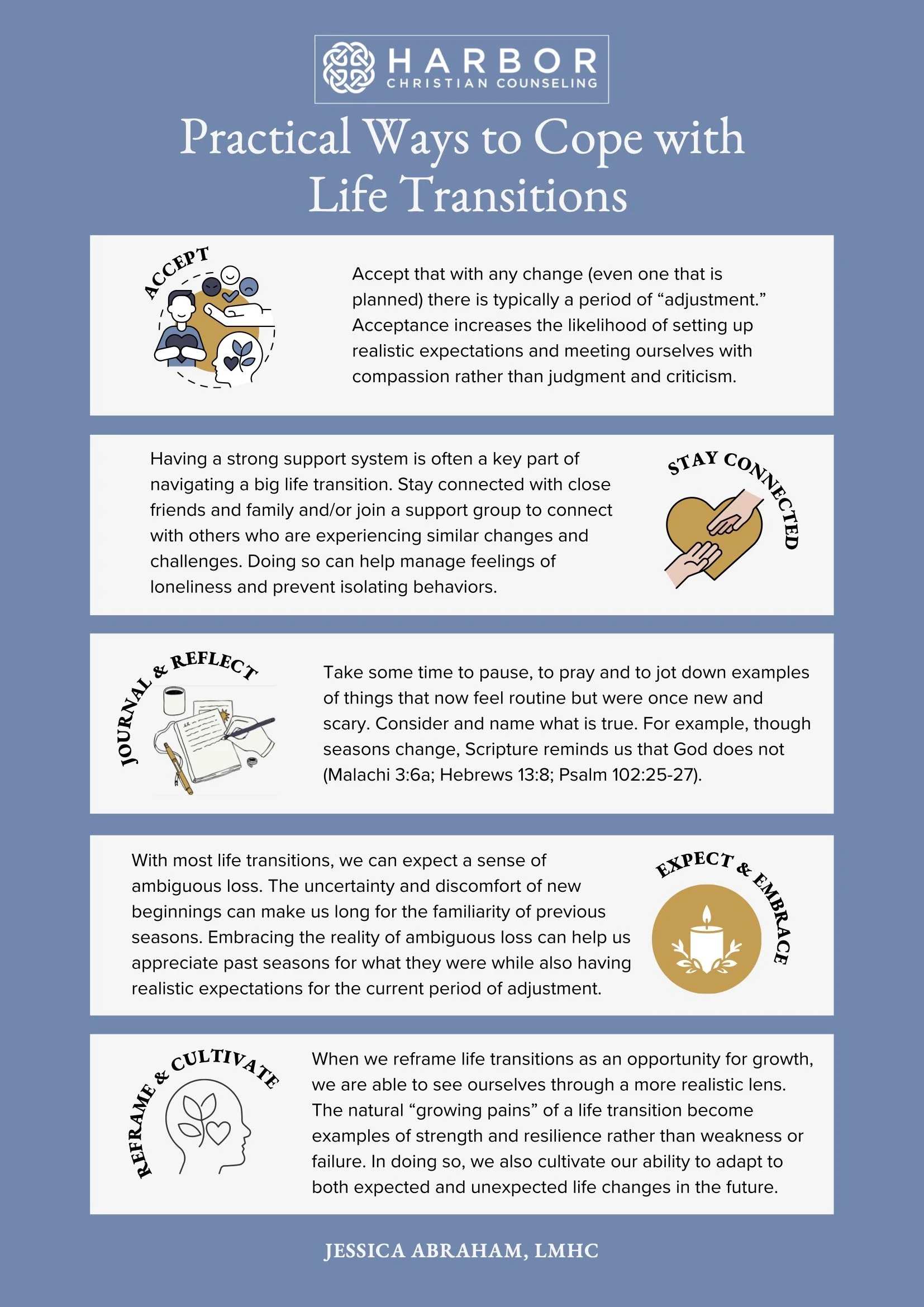ORIGINALLY RELEASED AS THE SEPTEMBER 2025 EDITION OF THE HERE & NOW NEWSLETTER (CLICK HERE TO SUBCRIBE)
Written by Jessica Abraham, LMHC (Senior Clinician)
Whether we're transitioning from high school to college, moving to a new city, starting a new job, preparing for the arrival of a baby, growing older, or getting married — adjusting to a new season typically brings with it a rush of different emotions and unique challenges. Interestingly enough, we can experience changes in our mental and physical health even if an upcoming life transition is expected, planned for, or feels hopeful.
One reason for this is that most of us tend to be creatures of habit. Therefore it’s pretty normal to dislike change and to find it disorienting, especially because change often brings with it discomfort and uncertainty. Losing our regular rhythms, support system, and familiar surroundings can often increase anxiety, irritability, and low moods as well as shift our sleeping and eating patterns. These internal shifts on top of adjusting to external factors can make us feel less like ourselves which often results in isolating behaviors, increased worrying, or feeling “stuck."
It’s been commonly said that, “the only constant is change.” Scripture similarly reminds us that life circumstances and the world around us is constantly changing (Ecclesiastes 3:1-8; Daniel 2:21). So, if change is part of the human experience, how can we navigate life transitions with resilience rather than succumbing to fear, overwhelm, or avoidance?
Check out our infographic below for some practical ways to do this:


